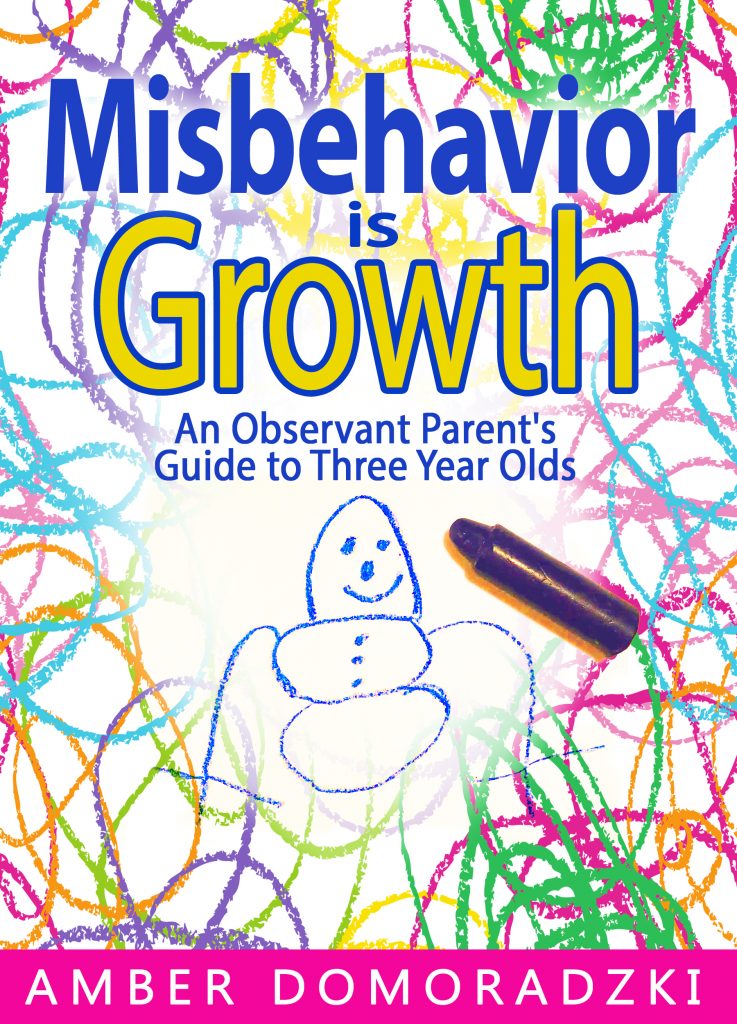A very dominant theme in early child developmental psychology is object constancy. The first example of it given, found sometimes in books for young infants or toddlers, is when the child knows that if a ball (or bowl, etc.) is put behind your back, it still persists.
As a child grows, this sense of permanence about what persists despite {any given thing} grows in complexity. As one example, in the early threes, they might know that “Even though the stepsisters accuse Cinderella of theft and attack her, she is still a good person.” This is another form of object constancy. Cinderella is still good, despite the evil stepsisters inaccurate accusations and attacks. This kind of object constancy is profoundly important.
I argue in my next Misbehavior is Growth book, on three year olds, that the most important development at age 3 is core personality integration. The late threes are especially critical. There is a milestone in the late 3s that I call “Themes.” In this, they take several disparate parts or events and put them into a theme. In that, one theme is themselves. And they put together a mental resume of who they are. They might say, “I am responsible because I help my mother with the dishes.” Or “I am kind because I help my sister.” Or they may delight in the knowledge that they, yes they, made you laugh. “I made you laugh Mommy!?” They develop an idea of who they are, on a conscious level.
This follows several months worth of realizing they are actually a person. In the twos, they thought if they put on a Snow White outfit, they become Snow White. This changes in the early threes. They realize they are just pretending. In other words, who they are persists. It doesn’t just change when you put on an outfit. They individuate at almost every milestone, coming out more and more as a being that chooses how to be (unlike, I think, any other animal in existence). Hence, as noted, why I think age 3 is a critical age and the most critical development is what I call core personality integration.
This core personality integration is also object constancy. Who am I? Does it change? Does someone’s harsh words or shaming affect who I am? I am kind–what if someone falsely accuses me of being mean? THIS is the core skill any person needs in life, from age 3 on. It is your child’s guard against shame.

If you read through the work on personality disorders of adults, you will find they lack this object constancy. Sam Vaknin’s work on narcissism is of note. In the article linked he explicitly discusses object constancy. He describes it all throughout his website. In short, a narcissist has none. He has no core personality. What should have grown, his “true self,” got thwarted, likely from highly abusive parents. He as such constantly lives off of the admiration and adoration of other people to prove he even exists.
I have to imagine they feel almost always like they are out at sea, cold, drifting, and alone, never knowing what horror might be inflicted on them. The slightest criticism is crushing to them, of which they develop many defense mechanisms against. Proper development of a child’s core personality integration at age 3 resolves this. In the article linked, Vaknin describes other child psychologists who say this object constancy is put in place at very young ages.
This helps me as a I live life. I have a very high ability to endure shame. Rather, I have a high ability to endure people trying to malign me. Or who pressure me that, say, they won’t like me if I don’t do X or if I have Y view. I snap back from it, easily. I quite simply know that this shame is never appropriate. A highly popular Instagrammer can tell me what I said “is the funniest thing she’s ever heard” in a derogatory way (true story) and I just bounce back (she deleted it).
It is this object constancy that protects me. I know, deep down, that I am a good and decent person. My views are genuine, and prejudice about me and people like me abound. I have a general belief that life should be good, that the default is joy, and this toxic stuff just shouldn’t effect me. This is the main point of my book Towards Liberalism. Liberal as in “abundant.” Life is liberally, abundantly, filled with joy, by default. Everything else that is toxic is small and temporary. I, as such, can keep quite a bit in perspective. I can get negative reviews, be maligned, all but bear my soul in public, and I can snap back to the joy inside. I am aware, for instance, that the book review process is ripe for narcissistic abuse. I know that popular Instagrammer is quite narcissistic. I believe what I am saying and my personal work is bigger than the review process, bigger than the politics of 2020, bigger than Instagram, and that I can endure. Object constancy.
I discuss this importance of the well development of this core personality integration in my next Misbehavior is Growth: Misbehavior is Growth: 3 Year Olds. Some things I discuss:
- Why I do not use “natural consequences” on children (it creates shame, not growth and children go through natural stages where we DO need to “rescue” them)
- Why I think appealing to children’s imagination works better than appealing to their rational mind
- Why I use “conflict resolution” not “discipline”
- How you can lean into child development at each milestone, noticing their strengths, and encourage their well development
- Descriptive praise (essentially compliments)
My main goal in parenting activism is to remove any unnecessary toxic shame put in young children’s hearts. The pressure children are put under to “behave” does far more damage than most realize. We should not be able to yank children, or adults, around by the yoke of their own sense of shame. Their own sense of guilt is prewired and healthy. People are naturally born with this conscience (unless psychopathic–a topic itself!) and a desire to make amends for anything they did that is wrong. When we try to exploit this by “programming” a child’s emotions and morals, we do a tremendous amount of damage. I also discuss this in Towards Liberalism: A Challenge to Objectivist Ethics, as well as in Misbehavior is Growth: Three Year Olds. It’s that “programming” of a moral core–what most philosophers who adopt blank slate theory explicitly state is their goal–that is the challenge.
Misbehavior is Growth: 3 Year Olds is available for preorder now and will be available by late 2020 or early 2021:


Send your friends to www.theobservantmom.com
One thought on “Object Constancy Versus Shame”